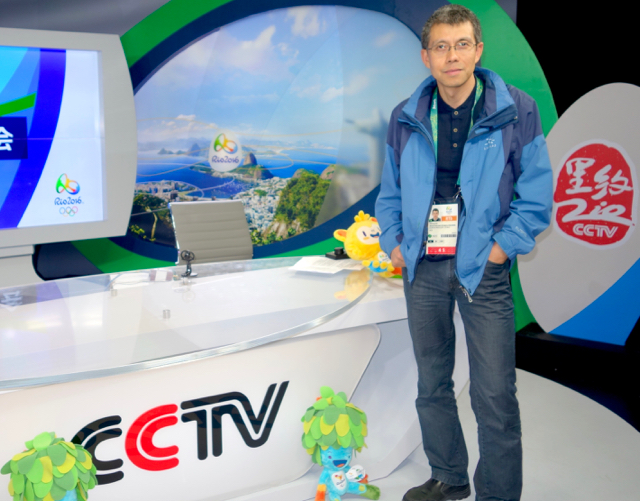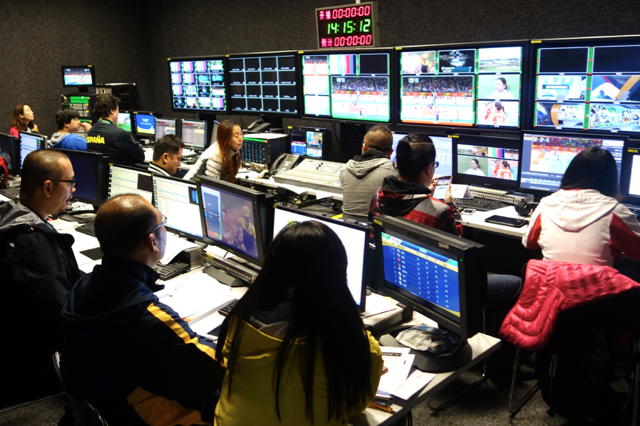Live from Rio 2016: A CCTV Olympic First as Digital Team Makes the Trip
China’s public broadcasting sports network, CCTV, is on site at the Rio games with a team of nearly 400 people that are creating 19 hours of content locally that is matched up with five hours of content created in Beijing. That double punch gives Chinese viewers 24/7 coverage of the games on TV as well as content delivered via the CCTV app thanks to a digital content creation team that is on site at an Olympics for the first time ever.

Junhong Xue, CCTV Olympic head of technical operations, inside CCTV’s studio.
“Normally the new media team would be in Beijing but this year they are here,” says Junhong Xue, CCTV, head of Olympic technical operations.
CCTV has a main studio in the IBC as well as another studio in the Olympic Park. Getting those studios constructed was the first challenge for the Chinese national broadcaster as local workers were used for the build out.
“That delayed our plan and was the first difficulty we had,” says Xue. “Another one is the long distance for our transmission circuits. We have two STM4 circuits and one STM1 circuit and because of the long distance to Chine we have had some problems with the transmission. I have heard that the Koreans have also had issues.”
CCTV is relying on the OBS VANDA+ package of 55 video and audio signals to cut a complete ready-to-air program that is then sent back to Beijing for airing. There are also editors on site editing feature stories and highlight packages.

The CCTV control room in Rio for CCTV-5, the Chinese national broadcaster’s sports channel.
The next three Olympic games will all be much closer to China as Korea will host the 2018 winter games, Tokyo the 2020 summer games, and Beijing the 2022 winter games. Being in Asia also will put coverage much more in line with China’s time zone (it only has one, despite its massive size) and give CCTV a chance to maximize production value.
“In Sochi we had less than 200 people and we expect to have a larger amount of people in Korea than we did in Sochi,” says Xue. “The space we will use is the same size as we have here in Rio.”
